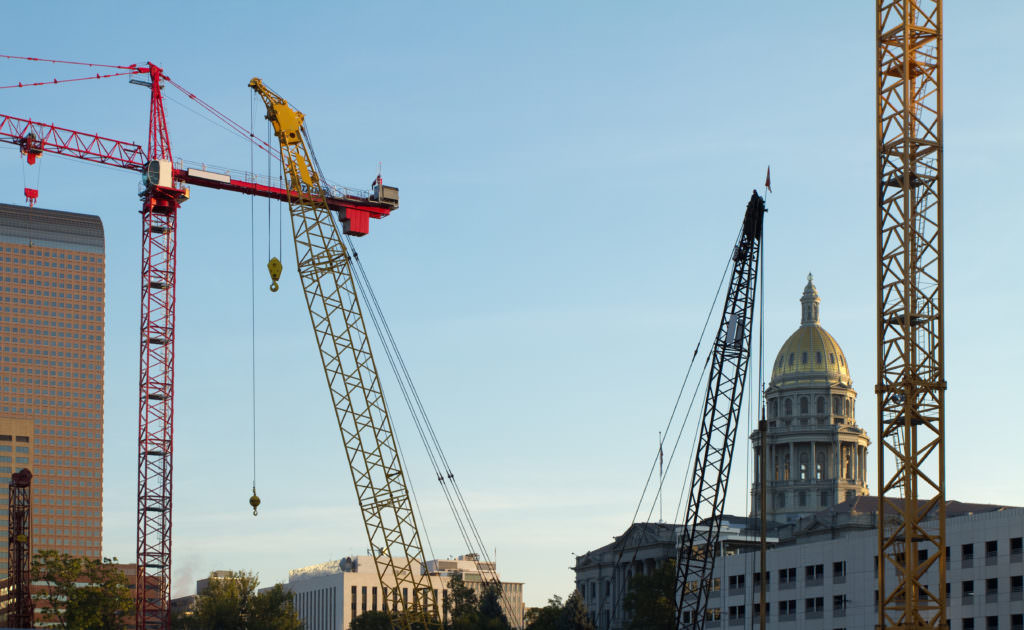
These factors and some questionable court rulings have led to increased construction costs and insurance premiums for those touched by construction defect litigation. Developers and builders have thus sharply cut back on condo projects, citing broader market forces. While the Denver population has continued to boom and apartment buildings are sprouting up everywhere, new condo construction has fallen off sharply. And, the cost increases have been passed on to buyers.
Statewide efforts designed to favor builders and stimulate more condo development through legislation have long been opposed by trial lawyers and consumer rights advocates. Accordingly, all state-level reforms since 2001 have been defeated or watered down. Construction defect reform proponents realized through past failures that comprehensive bills are too difficult to draft, negotiate and get to a successful vote. Over twenty cities passed their own ordinances designed to support condo builders. Now, at the state level, mini-reforms have been offered in separate packages, as reflected in the successful passage of HB 17-1279.
HB 17-1279 is a bipartisan construction defect reform bill passed in early May 2017. Its substance was previously proposed as one component of unsuccessful omnibus reform bills offered in past sessions. The new law amends the Colorado Common Interest Ownership Act, which governs the conduct of homeowners’ associations (HOAs).
The new law requires that HOAs members, not just the HOA board, must meet, discuss, and vote on whether to pursue construction defect claims. Before any vote is taken, the HOA must notify the developer. The HOA must then host a meeting within ninety days (which can be attended by the developer). This meeting will cover the potential risks and benefits of construction defect litigation, and the developer may propose to remedy the defects. The discussions will also touch upon the impact that litigation may have upon a condo’s resale prospects, and what might happen if the claim is unsuccessful and litigation costs are taxed against the losing HOA. During the ninety-day meeting period, the statute of limitations applying to construction defect claims is suspended.
In the short term, we do not believe that this limited statewide act requiring majority HOA consent to pursue claims will have a big impact on reducing the frequency and severity of construction defect litigation in Colorado. We believe that, by the time construction defect claims are being seriously contemplated by HOAs, the die is usually cast to move forward after the HOA board has consulted with its chosen attorneys and experts.
Other reforms previously suggested (and defeated) might have had a greater immediate impact, such as those dealing with arbitration mandates and additional insured coverage. These will have to wait (again) for the next legislative session.
Nevertheless, the new HOA consent law can be viewed as a significant reform milestone. First, it reflects the recognition by politicians that their constituents want action to spur the development and building of more housing options. Second, it may reflect a thawing of what has been intractable polarization between the political parties at the state level. Third, in the long run, perhaps some borderline claims will be abandoned during the ninety-day period in the face of an offer to remedy or an unsuccessful HOA member vote. Fourth, the very passage of this new law, which was supported by the building community and trumpeted in the media, puts pressure on developers to “put their money where their mouth is” and start new condo projects.
In closing, the new HOA consent law’s tangible effect, if any, on condo development in Colorado will not be fully appreciated for a few years. However, most typical construction defect defendants – and their liability insurers – are hopeful that the law will contribute to an easing of the difficult construction defect litigation climate in our state.
If you have questions or would like to discuss these issues further, please contact the author, Benton Barton, at bartonb@hallevans.com.
